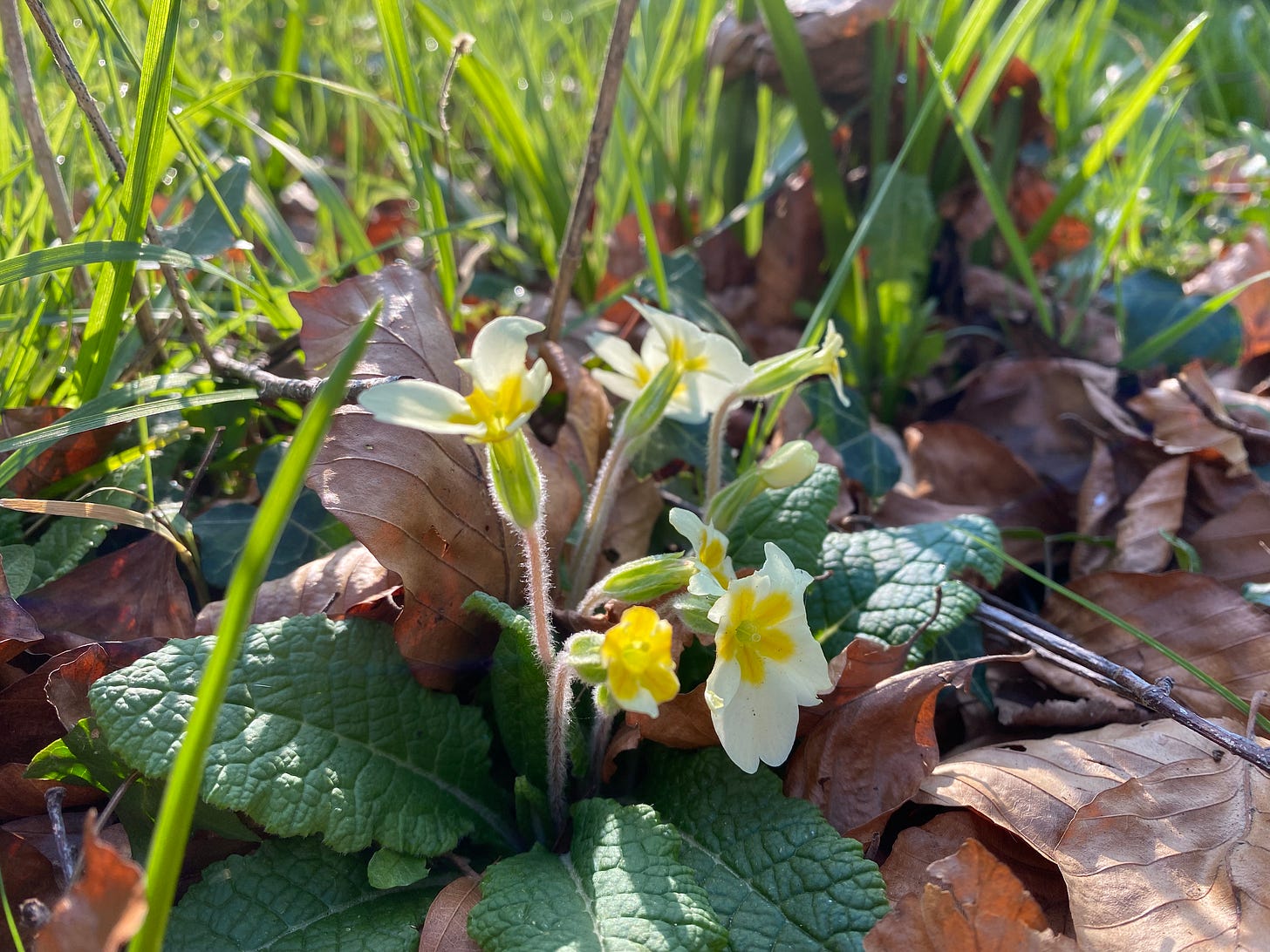EarthDay 2030 Newsletter
Optimism, Gratitude, Inspiration, Empathy, Connection ... Regenerative
Earth Day 2030
Happy 60th … welcome to Regen Notes1 celebrating EarthDay’s 60th anniversary.
27 years ago in 2013 the Living Building Challenge Bullitt Center opened in Seattle. Marking that first decade 10 years on, it was reported that the building had generated over 30% of the energy that it uses, demonstrating that energy-positive buildings are possible and viable.
“While I am thrilled with the way the Bullitt Center has performed, I am deeply saddened by the lack of progress in buildings overall,Despite obvious signs of climate change everywhere, we continue to race towards a cliff.” Denis Hayes 2023
Whilst progress in the built environment to date has improved it has been slow and in 2030 we still head towards that cliff, just maybe a lot slower.
“The Bullitt Center lives forever as a moment in time when the gauntlet was thrown down. People thought the building was impossible, until it existed. It shifted the paradigm about what’s possible in dramatic ways and got people thinking about what buildings could and should do” Lindsay Baker, CEO, ILFI
It was also back in 2023, following on from what is now seen as that key landmark - the 2022 COP15 Kunming-Montreal Global Biodiversity Framework - that called to halt and reverse nature loss by 2030 and create a nature-positive future for all, the World Economic Forum reported on five, then emerging nature-positive'trends:
Integrated approaches in stopping deforestation
Pace, scale and quality in forest restoration
Biodiversity credits to finance the nature-positive agenda
The power of urban environments to restore nature and improve public health unlocked
Indigenous knowledge to guide conservation and restoration
Invest In Our Planet
All these trends and more are now commonplace and well captured in the Earthday Vision of #InvestInOurPlanet.
Yet we now see that this is not just financial or resource investment but investing in finding the time and space for our regenerative development, and indeed giving the time and space to those we work, live and play with. Spending time in nature, which only a few years ago seemed odd, uncomfortable even and only for tree huggers is now commonplace and seen as being important in our lives.
Climate progress has been largely down to improving climate literacy through education at all stages, in business and communities, and with that, the mindset switched to the realisation that addressing climate and biodiversity issues is not what standard or legislation we follow, or what we pay to offset our climate negatives, but who we are, and how we act with planetary responsibility in the world.
Nature Positive
Today, in 2030, we can celebrate how actions taken to embrace nature and give it a voice have had a positive impact on biodiversity. This is particularly noticeable here in the UK, where, through a change in optical drive, we have moved from being one of the least biodiverse countries to being a leader. Many businesses and individuals have recognized the value of natural resources and the role they play in supporting the health of our planet's ecosystems. As a result, we have seen significant progress in protecting and restoring natural habitats, reducing pollution, and promoting sustainable land use practices.
These actions have had a positive impact on biodiversity, with many species recovering from the brink of extinction. The reintroduction of native species, such as beavers and lynx, has helped to restore ecosystems and promote biodiversity. We have also seen the creation of new (urban and rural) wildlife corridors and protected areas, which have provided safe havens for wildlife to thrive.
Moreover, these actions have contributed immensely to carbon reduction, helping the UK meet its carbon-neutral target. The restoration of natural habitats, such as forests and wetlands, has helped to sequester carbon and mitigate the effects of climate change. Additionally, the adoption of sustainable practices in agriculture, transportation, the built environment and energy production has reduced the country's carbon footprint, overall promoting a healthier planet.
Feeling Better
According to the Green Party Government 2030 Spring Survey on how people feel about the climate crisis and our relationship with nature, the top five positive emotions reported were:
Optimism: Many respondents expressed optimism about the future of the planet and the progress made in addressing the climate crisis and protecting biodiversity. This optimism was often fueled by the increasing commitment and collaboration of governments, businesses, and individuals towards a more sustainable future.
Gratitude: Respondents also reported feeling grateful for the natural world and the benefits it provides, such as clean air, water, and food. A gratitude driven by a deeper appreciation for the interconnectedness of all living things and the need to protect and preserve our natural resources.
Inspiration: Many respondents reported feeling inspired by the actions of others in addressing the climate crisis and protecting the environment. This inspiration driven by the rise of grassroots activism and community initiatives, as well as the leadership of government and business leaders in promoting sustainability.
Empathy: Respondents also reported feeling empathy for the natural world and the species that inhabit it. This empathy emerged from a recognition of the impact that human actions can have on the environment and the need to take responsibility for protecting the planet and all its inhabitants.
Connection: Many respondents reported feeling a deeper connection to the natural world and a desire to protect and preserve it for future generations. This was noted as a recognition of the important role that nature plays in sustaining life on Earth and the need to ensure that it remains healthy and vibrant for years to come.
Zoom Regenerative: Soil, Seas and Streets
Step back in time and join us for ZR55 on the 25th April 2023 with Dr John Ennis
RESTORD 2030
This newsletter is brought to you from the City of RESTORD 20302
Regen Notes is a companion newsletter to Zoom Regenerative - sharing regenerative related news, stories and thinking prompts.
Previous articles on Regen/Notes can be explored here
I make free and paid subscribers' content generally the same with a few exceptions. Paid is to show a little appreciation, encouragement and support. I am in debited to those who support through subscriptions
RESTORD 2030 A Regenerative Guide for Educators, Students and Practitioners. (A primer for the (re)imagination of a city ten years into the future. The City of RESTORD) More information and Read RESTORD 2030 here





